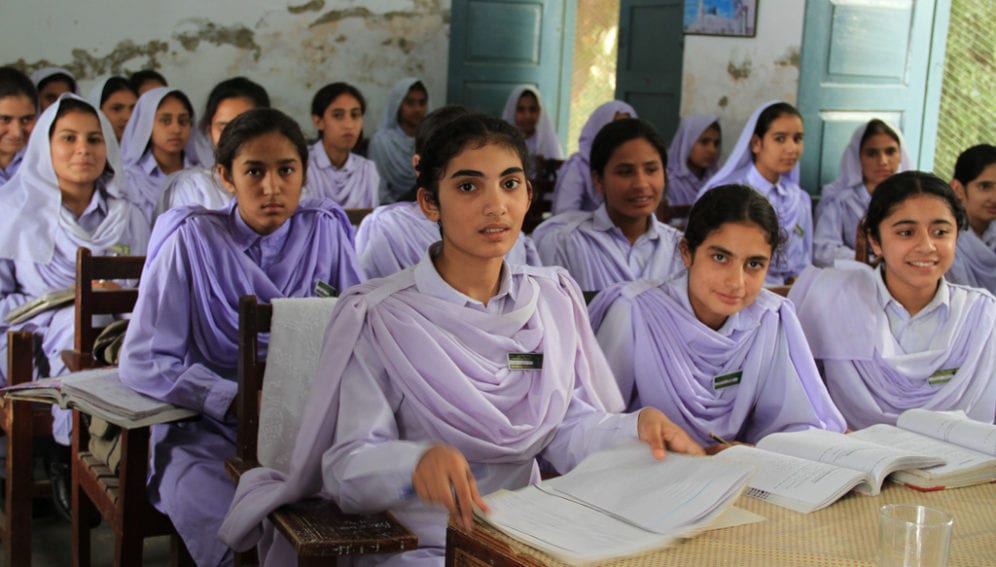By: Henrietta Miers
Send to a friend
The details you provide on this page will not be used to send unsolicited email, and will not be sold to a 3rd party. See privacy policy.
The Independent Commission for Aid Impact (ICAI) has published a report criticising how the UK Department for International Development (DFID) uses research to improve the results of its programmes, as SciDev.Net recently reported. In particular, the ICAI report noted a “bias to the positive” in how DFID reports results and recommended stronger reflection around “what does and does not work”. [1]
The ICAI’s findings are particularly relevant when it comes to DFID failing to use evaluations and research to inform its gender equality efforts.
One example of a DFID-funded gender equality programme I have seen in Africa shows clearly how their reporting is skewed to highlight the positive when — reading between the lines — not much progress has been made.
In February 2009, DFID pledged £15 million (more than US$25 million) for a five-year programme to improve gender equality in Uganda. [2] The money was to be funnelled through several UN agencies under a ‘Joint UN Programme’ intended to harmonise UN interventions. To date, DFID has spent just over £11 million from a revised budget of just under £13 million.
The programme was set up to combat violence and discrimination against women, improve services for victims of sexual and gender-based violence, and boost gender-disaggregated data collection.
In early 2013 DFID themselves commissioned an annual review of the programme and this awarded it an ‘A’ score overall (defined as ‘output met expectation’). [3] However, a close reading of the review raises questions about this grade.
For example, the programme’s first component, which was supposed to strengthen government institutions around gender equality, only scored a ‘B’ (‘output moderately did not meet expectation’), and the review recommended that the impact of the substantial research, workshops and courses DFID was carrying out and hosting in this area be better monitored and documented.
The second component, relating to improving access to legal, health and psychosocial services for survivors of violence, scored an ‘A’ — although documentation was found to be weak and progress could not confidently be attributed to the programme.
The third output, to increase primary school access for girls, also scored an ‘A’ — odd, given that the review found that results were insufficient to have a national or even district level impact. It also noted that there is an ongoing debate in Uganda about whether increasing access to education is really worthwhile, if systemic problems with the quality of local curricula are not addressed in tandem.
It is hard to see how the annual review could award the programme an ‘A’ overall, when its individual components seem very far from meeting their objectives. These observations are similar to the concerns raised by the ICAI review and indicate that DFID needs to raise its game when using research to improve results.
It is now even more important for DFID to base its gender equality work on unbiased evidence from research and evaluations. This March the UK government passed the International Development (Gender Equality) Act 2014 to promote gender equality when providing development and humanitarian assistance. This, combined with DFID’s strategic vision for girls and women, launched in 2011, has put the spotlight back on the department’s gender equality work. [4]
A glance at DFID’s research website, R4D, reveals plenty of research commissioned around gender. Perhaps now is the time for the ICAI to commission a specific review into how DFID applies this and other regular evaluations into improving gender equality.
Henrietta Miers has worked across Africa and Asia as a gender and social development consultant for 20 years, specialising in gender policy. She is senior associate of WISE Development, a consulting company that focuses on boosting economic opportunities for poor women.
DFID is a SciDev.Net sponsor.
References
[1] How DFID learns (Independent Commission for Aid Impact, April 2014)
[2] DFID Uganda/DFID announces major boost for gender equality (African Press Organization, 24 February 2009)
[3] Annual Review: United Nations Joint Programme on Gender Equality — Uganda (DFID, 2013)
[4] A new strategic vision for girls and women: Stopping poverty before it starts (DFID, 2011)














